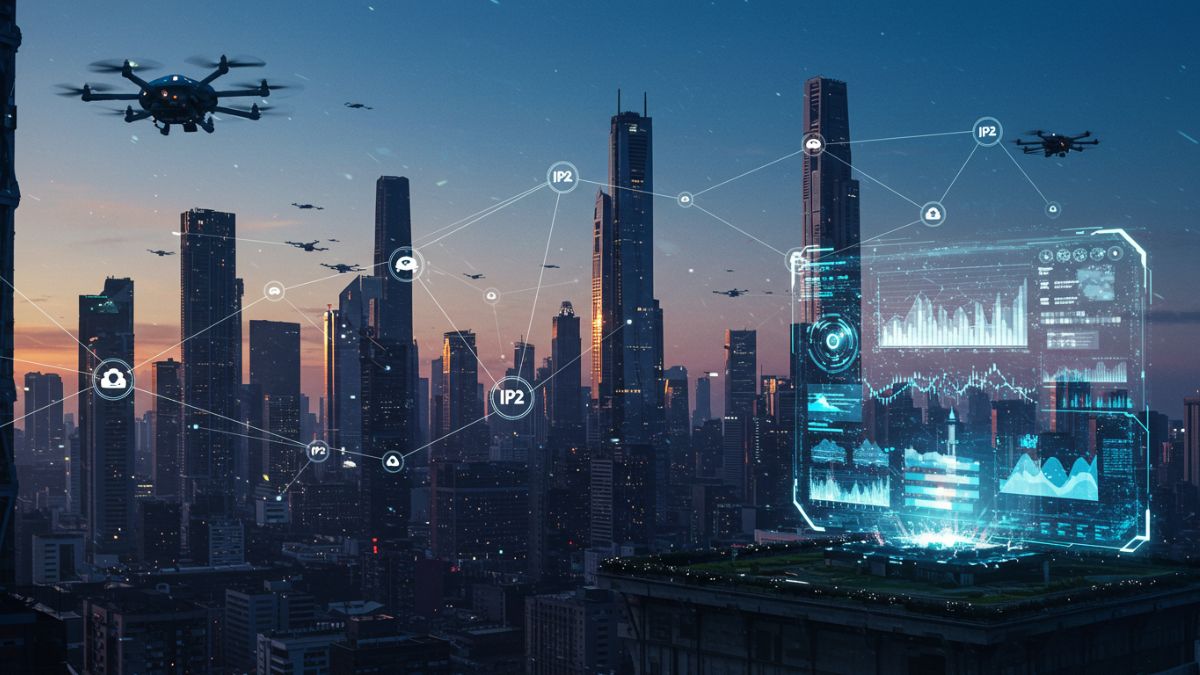The digital landscape is evolving at an astonishing pace. Amidst this rapid change, the need for faster and more secure connectivity has never been greater. Enter the IP2 Network, a revolutionary approach to decentralized connectivity that promises to reshape how we connect online. Imagine a world where you are not limited by traditional Internet Service Providers (ISPs) or centralized servers. Instead, envision a network built on collaboration, security, and autonomy.
But what does this mean for everyday users? How can it benefit businesses and individuals alike? As we explore the intricacies of the IP2 Network, you’ll discover its potential to transform our interaction with technology while addressing some of today’s most pressing connectivity challenges. Buckle up; it’s time to dive into the future of networking!
What is Decentralized Connectivity?
Decentralized connectivity is a transformative approach to networking that removes central points of control. Instead of relying on traditional servers or infrastructure, it distributes data across numerous nodes.
This structure enhances security and resilience. Each node operates independently, making the network less vulnerable to attacks or failures. If one part goes down, others can continue functioning seamlessly.
Users gain more control over their data as well. With decentralized systems, individuals have ownership rather than leaving their information in the hands of large corporations.
Moreover, this model promotes inclusivity by allowing anyone with an internet connection to participate. It fosters innovation through collaboration without barriers imposed by centralized entities.
Decentralized connectivity redefines how we interact online and opens up new avenues for communication and commerce.
Benefits of IP2 Network
The IP2 Network offers a multitude of advantages that set it apart from traditional connectivity methods. One significant benefit is enhanced security. By operating on a decentralized framework, the risk of single-point failures and data breaches diminishes substantially.
Users also experience increased privacy. With no central authority controlling the network, personal information stays protected from prying eyes. This feature appeals greatly to individuals who prioritize anonymity online.
Moreover, IP2 fosters resilience against outages or disruptions. Since it’s not reliant on one server or location, users can maintain consistent connections even during local issues.
Cost-effectiveness stands out as another key advantage. Decentralized networks reduce overhead costs associated with managing large infrastructures, making services more affordable for everyday users and businesses alike.
The potential for innovation is immense within this ecosystem. Developers have greater freedom to create unique applications tailored to diverse user needs without being stifled by rigid regulations often found in centralized systems.
How IP2 Network Works
The IP2 Network operates on the principles of decentralization and peer-to-peer connectivity. Instead of relying solely on traditional servers, it utilizes a distributed network of nodes. Each participant in this ecosystem contributes resources, enhancing overall performance.
Data packets travel through various pathways rather than following a single route. This flexibility allows for improved speed and reliability. Users can connect directly with one another, bypassing intermediaries that often slow down transactions or data exchanges.
Smart algorithms play a key role in determining the most efficient pathways for data transfer. They adapt to changing conditions in real-time, ensuring resilience against outages or congestion.
Moreover, security is woven into the fabric of the IP2 Network. Encrypted connections protect user privacy while enabling seamless communication across diverse platforms and applications.
Use Cases for IP2 Network
The IP2 Network opens the door to numerous innovative applications across various sectors. First, in the realm of IoT, devices can communicate seamlessly without relying on central servers. This enhances efficiency and reduces latency.
In finance, imagine decentralized payment systems that allow users to transact directly without intermediaries. Such solutions could lower transaction fees and increase accessibility for underserved communities.
Healthcare is another promising area. Medical professionals could share patient data securely among themselves while ensuring privacy protections are in place through decentralization.
Moreover, entertainment platforms could benefit from peer-to-peer streaming services. Users would experience reduced buffering times while creators maintain more control over their content distribution.
Education can harness IP2 technology to create collaborative learning environments where resources and knowledge flow freely among participants worldwide.
Challenges and Solutions for IP2 Network
The IP2 network faces several challenges as it strives to establish decentralized connectivity. One significant hurdle is the issue of scalability. As more users join, maintaining speed and efficiency becomes complex.
Security also poses a challenge. Decentralized systems can be vulnerable to attacks if not properly designed. Ensuring robust encryption and user authentication are essential for building trust among participants.
Another concern is regulatory compliance. Different regions have varying laws regarding data privacy and internet usage, which can complicate operations in multiple jurisdictions.
To address these issues, developers are focusing on advanced algorithms that enhance scalability without sacrificing performance. Implementing strong security protocols will help safeguard user data against potential threats.
Engaging with lawmakers early on could pave the way for clearer regulations that support decentralized initiatives like the IP2 network while balancing necessary oversight.
Conclusion:
The IP2 network represents a promising shift towards decentralized connectivity. Its innovative approach redefines how we interact online, prioritizing privacy and security while minimizing reliance on centralized authorities. As the world continues to embrace digital transformation, the demand for such solutions will only grow.
With numerous benefits including increased resilience against outages and enhanced user control, this network has the potential to reshape our internet experience significantly. The technology behind it is complex yet fascinating, offering a glimpse into a future where users truly own their data.
While there are challenges ahead—such as scalability and regulatory hurdles—the solutions being developed address these concerns head-on. As more individuals and businesses adopt decentralized models like IP2, we’re likely to see new use cases emerge that further leverage its capabilities.

